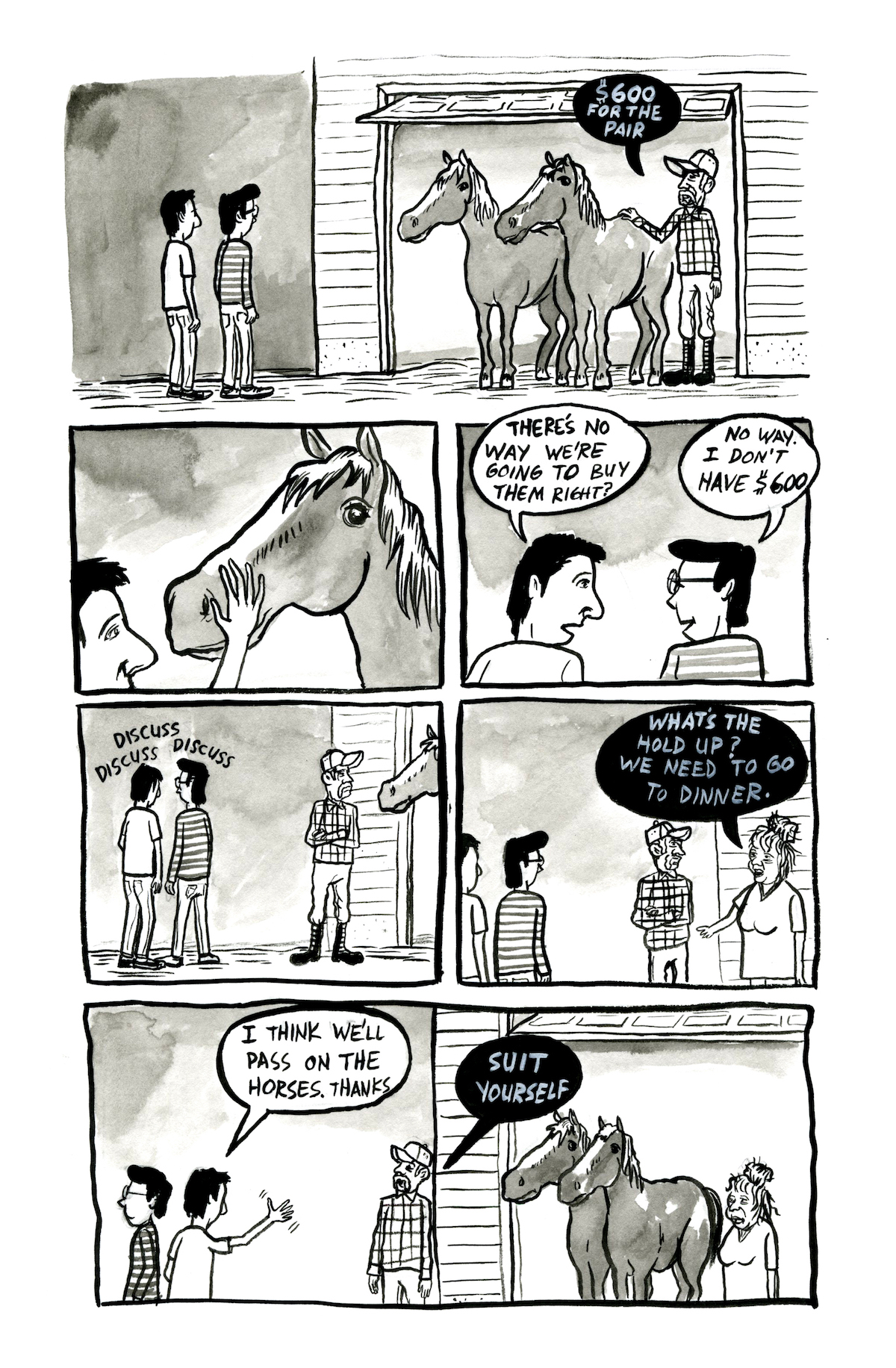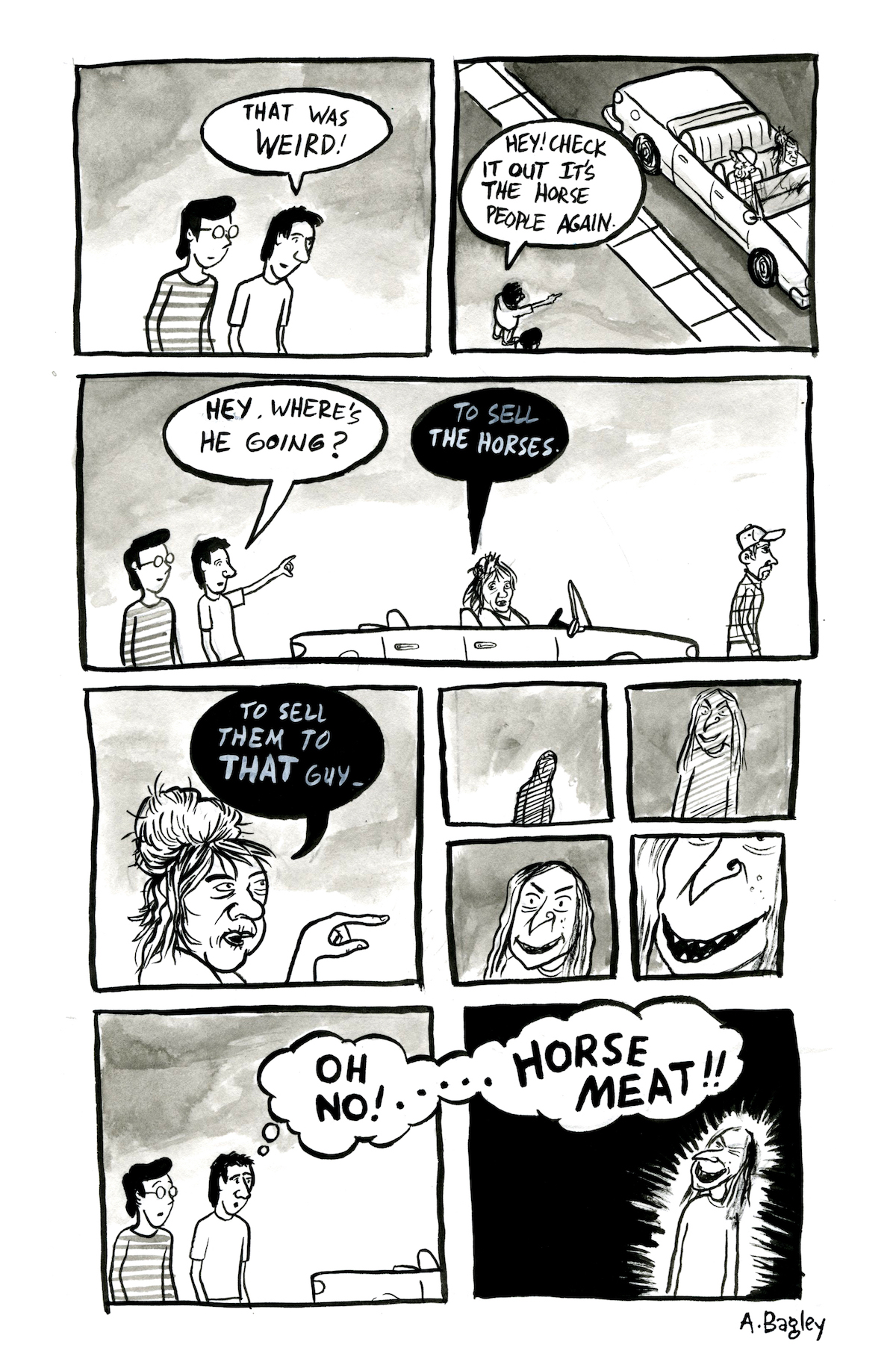Seattle, naturally
Published January 09, 2018, at 11:55am
It's easy to think of cities and nature as two opposing forces, but Adrienne Ross Scanlan reminds us that Seattle is nature and a city, and you can't have the one without the other.
Lesson Plan
Let’s practice getting under the desk.
Let’s practice barricading the door, turning the blinds
in our eyes. Shhh now. Let’s demonstrate
in utter silence. Every desk is a bunker in disguise.I must have walked a hundred miles
in a single afternoon. No one followed,
pacing myself. Sunlight stained the leaves like glass.
Vine maples tangled in an avalanche of shine.The protocol is not what you think.
The protocol is run hide fight. Step by step
the trail cut from granite
bleached and gleaming, strewn like the bonesof old calamity. Varied thrush
or rush hour radio, call note drowsy like a long fuse,
like pure denotation. Sometimes I hear guns
in the valley — pick-up trucks, tin cans, shattered bottles,trigger trash. Sometimes I hear bullets
marching down the hall. Today there is no question
and answer. Today is only multiple choice —
the field trip wire lying in wait, mare’s tails combing the ridgelike movie weather. Crescendo of mountain.
Is this a classroom or a mortuary? Who can catch
a bullet in the mouth? Bullet points for extra credit.
Bullets for teeth, for the all above.
The paranoid genie in the bottle

Conon Parks returns as sponsor this week to share an excerpt from Some Kind of Ending, a collaboration with Mike MacNeil and illustrator Randy Jones. Set in Reagan-era Seattle, Ending is a solid whole built from materials that always feel like they're about to drop you through the slats — sentences that steer you one way, then spin you like a bottle; sketches and scribbles that feel like they came straight from a zine. It's gritty, it's weird, and it'll turn you upside down and shake the change out of your pockets — all the while reassuring you that you're its best friend.
Read an excerpt from the first chapter on our sponsor’s page. Then click the link to pick up a copy through Indiebound.
Sponsors like Conon Parks make the Seattle Review of Books possible. Did you know you could sponsor us as well? Get your book, event, or program for writers in front of our passionate audience. There are just a few dates left in the first half of 2018. Take a glance at our sponsorship information page for details.
Your Week in Readings: The best literary events from January 8th - January 14th
Monday, January 8: African-American Writers' Alliance Poetry Reading
Members of Seattle’s own African-American Writers' Alliance share their poetry in a laid-back setting. Have you noticed that there are more readings happening in the south side of Seattle these days? Isn’t that great? Third Place Books Seward Park, 5041 Wilson Ave S, 474-2200, http://thirdplacebooks.com, 7 pm, free.
Tuesday, January 9: The Doomsday Machine Reading
Daniel Ellsberg is, flat-out, one of the greatest American heroes of the last hundred years. His bravery in exposing the Pentagon Papers should have earned him a monument in Washington DC, but perhaps he is just supposed to feel grateful for the fact that he hasn’t spent his entire adult life rotting in prison. In any case, Ellsberg is in town reading from his new book, The Doomsday Machine: Confessions of a Nuclear War Planner. Given that our president tweets unhinged things about our nuclear arsenal at weird hours of the day, this seems like an especially relevant book right now. University Temple, 1415 NE 43rd St,634-3400, http://www2.bookstore.washington.edu/, 7 pm, $5Wednesday, January 10: Castalia
The first 2018 edition of the UW creative writing reading series features poets Emma Aylor and Ainsley Kelly,as well as prose stylists Areej Maysarah Quraishi and Anca Szilagyi, along with faculty reader Maya Sonenberg. Hugo House, 1021 Columbia St., 322-7030, http://hugohouse.org., 7 pm, free.Thursday, January 11: The Immortalists Reading
Author Chloe Benjamin’s latest novel, The Immortalists, is about a mystical prophecy that foretells death. It’s a clever addition to the genre of fiction based around the primal thought experiment centered around what you would do if you knew the exact date and time of your death. Elliott Bay Book Company, 1521 10th Ave, 624-6600, http://elliottbaybook.com, 7 pm, free.Friday, January 12: The Days When Birds Came Back Reading
Oregon author Deborah Reed’s latest novel is about a writer who hires a carpenter to renovate and refresh her grandparents’ decaying home. It’s a book that deals with questions of trauma and guilt and the horrible things that members of families do to each other. Elliott Bay Book Company, 1521 10th Ave, 624-6600, http://elliottbaybook.com, 7 pm, free.Saturday, January 13: Two Countries: US Daughters and Sons of Immigrant Parents Reading
See our Event of the Week column for more details.
Elliott Bay Book Company, 1521 10th Ave, 624-6600, http://elliottbaybook.com, 7 pm, free.
Sunday, January 14: Writers Read
This event, which is co-sponsored by the African-American Writers’ Alliance, is a reading and open mic featuring fiction, poetry, and essays. Bring your latest writing and see how it lands on a crowd of real live people. Seattle Public Library, Columbia City Branch, 4721 Rainier Ave S, 386-1908, http://spl.org, 2 pm, free.Ellie Hall at Buzzfeed writes:
Alt-right provocateur Milo Yiannopoulos will be representing himself in his lawsuit against Simon & Schuster, a spokesperson confirmed to BuzzFeed News.
Between Yiannopoulos's lawyers leaving his case and Steve Bannon cucking out majorly over the weekend, it's a really bad time for the alpha-dog/16th-dimensional-chess/alt-right crowd right now.
Event of the Week: *Two Countries: US Daughters and Sons of Immigrant Parents* Reading
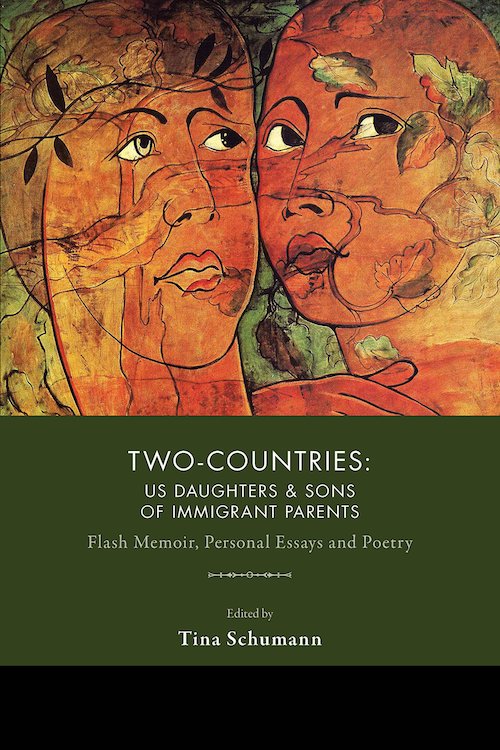
Certain Trumpy wall-o-philiacs seem to have forgotten that immigration is at the very heart of the American ideal. Those same alt-right douchebags have armed themselves with bushels of doctored statistics and phony stories to gin up a hearty phobia of immigrants in white Americans. Their goal is to foment fear in an effort to other immigrants, to build them into a monstrous “them” that “we” can then demonize and force out.
Of course, the single best way to combat these dingbats is to allow immigrants to tell their stories, to amplify those stories in any way we can, and to encourage environments where those stories are honored. Storytelling is how we turn “them” into “us” again.
Red Hen Press just released a book titled Two Countries: U.S. Daughters and Sons of Immigrant Parents — a collection of prose and poetry about the immigration experience from the perspective of second-generation Americans. Edited by poet Tina Schumann, the collection could not have arrived at a more perfect moment.
These are deeply personal stories, told with love and care. Dori Appel contributes a poem about the difference between her two sets of grandparents. One grandmother allowed her husband to leave her family and slowly build a life for them thousands of miles away; if the other grandfather had tried that, Appel writes…
my grandmother Sarah would have
gone after him in the wagon
and brought him home,
the way she did when they took him
or the Polish infantry.
These are the stories of families, each as unique as a heartbeat. Some came to America as refugees. Others came seeking opportunities. Others were more comfortable. But they all came, and they all love it here. As these stories illustrate — through comedy, through seriousness, through shockingly direct prose and through layers of metaphor in poems — they’re all as American as you or I.
This Saturday, January 13th, Schumann reads at Elliott Bay Book Company with Seattle poet (and recent Redmond Poet Laureate) Shin Yu Pai, who contributed to the volume a characteristically thoughtful account of visiting Taiwan with her aging father for "a reunion of the living." If your family, too, came to this rocky bit of nowhere in search of a better life, maybe you should go and share your story, too.
Elliott Bay Book Company, 1521 10th Ave, 624-6600, http://elliottbaybook.com, 7 pm, free.
The Sunday Post for January 7, 2018
Each week, the Sunday Post highlights a few articles we enjoyed this week, good for consumption over a cup of coffee (or tea, if that's your pleasure). Settle in for a while; we saved you a seat. You can also look through the archives.
Child Bride
Daniel Wallace’s mother had a favorite story about herself, one that was believable, but only just. Turns out it was also true, but only sort of. This is a kickass family detective tale and a masterclass in how people construct the stories they tell about themselve — true, false, and in between.
Now, I don’t know what else was made up, or if all of it was, or why my mother needed this fictional creation of self, of a controversial and even tragic past that never happened. Maybe she just loved how the story, like a car wreck, got your attention and made it impossible to look away. The sex part, of course, she loved. And the fact that it was against the law, even in Alabama, only made it better. She lied about her age to the judge and got away with it, and she loved that. The judge never even asked to see proof. She loved that, too. Apparently no one asked to see proof of anything, ever. Until I did.
Bussed out
The idea of offering people without a home a free bus ride to the city of their choice — a city with a lower cost of living, or where a supportive family waits — is alluring. But those are best cases, especially when accepting that ticket means promising never to return (let’s talk about consent in the context of being homeless, jobless, and entirely reliant on broken social systems, maybe?).
The Guardian spent eighteen months gathering data and stories from homeless relocation programs in the United States. It’d be ugly to call this massive state-to-state migration of the displaced a game of hot potato, but not as ugly as the reality itself.
Officials currently involved in running programs in Denver, Jacksonville, and Salt Lake City all told the Guardian they saw them as cost-effective programs that delivered their cities value for money by reducing the numbers living on their streets.
Yet it appears bussing schemes are also being used to give a misleading impression about the extent to which cities are actually solving homelessness.
When San Francisco, for example, reports on the number of people “exiting” homelessness, it includes the tally of people who are put on a bus and relocated elsewhere in the country. It turns out that almost half of the 7,000 homeless people San Francisco claims to have helped lift out of homelessness in the period of 2013-16 were simply given one-way tickets out of the city.
Trashed: Inside the Deadly World of Private Garbage Collection
Residential trash collection is a dirty job, but commercial trash collection is a dirty job. Kiera Feldman investigates how poor regulation and private-sector competition have created what amounts to a war zone for garbage collectors who serve businesses in New York. It’s a dangerous, poorly regulated, and poorly compensated profession — for the people driving the trucks and lifting more than 20 tons of garbage in a shift. For the cartels and unions who’ve run the industry, it’s a cash cow. Note that the anecdote below is from 1993.
Controlled primarily by the Gambino and Genovese crime families, four trade waste associations enforced the property-rights system — the cartel — using extortion, threats and violence. Favored tactics involved baseball bats, firebombing garbage trucks and the occasional murder. When Browning-Ferris Industries, a major national waste company, tried to enter the market in 1993, an executive found the severed head of a dog on his doorstep one morning. A note was stuffed into its mouth: “Welcome to New York.”
Whatcha Reading, Cat Rambo?
New column! Every week we ask an interesting figure what they're digging into. Have ideas who we should reach out to? Let it fly: info@seattlereviewofbooks.com.
Cat Rambo is a Seattle based writer, and current president of the SFWA. Her second novel, Hearts of Tabat, is coming in April.
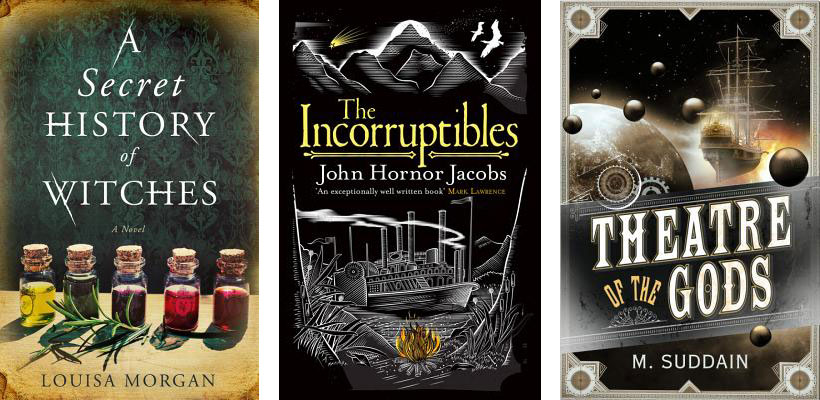
What are you reading now?
Right now I am reading Louisa Morgan's A Secret History of Witches. Morgan's the pen name for local author Louise Marley, whose work I enjoy under any name.
What did you read last?
I just finished up John Hornor Jacob's Incorruptibles trilogy, a wild mash-up of weird Western steampunky stuff with an alternate history where Roman never fell. Highly recommended!
What are you reading next?
Next up is M. Suddain's Theatre of the Gods, which the Guardian described as "like Douglas Adams channeling William Burroughs channeling Ionesco, spiced with the comic brio of Vonnegut." How could I resist something like that?
New Saturday Column
Later this morning we'll be debuting a new Saturday column called Whatcha Reading? We ask a notable and interesting figure to answer three questions:
- What are you reading now?
- What did you read last?
- What are you reading next?
Some will answer succinctly, and others will go on into greater detail. Everybody likes knowing what other people are reading. It's one of the most charming parts of seeing visiting authors: hearing about the books they are currently in love with.
It also suits a need on the Seattle Review of Books, where we often talk about authors and books, but don't have a running series of recommendations. Just touching base with people every week can do just that. If you think of somebody who would be great for this, drop us a line at info@seattlereviewofbooks.com
It's a tradition here that we start a new Saturday column each year. For the first six months after launching we ran Rahawa Haile's Short Story of the Day of the Previous Week roundup, which re-posted the tweets Rahawa was posting on Twitter each day. In 2016 we invested $20 each week in crowdfunding with the Kickstarter Fund Project. Of course, for the past year, we've run Seattle Writing Prompts.
Our new column marks the end of weekly writing prompts, but not the end of the series. They'll be back as an irregular feature when the occasion hits. In the meantime, if you're lacking for inspiration (and you find them inspirational), you'll find over fifty of them in the archive.
As always, we love hearing your thoughts. Reach out to us via the email above, on Twitter, or Facebook.
December's Post-it note art from Instagram
Over on our Instagram page, we’re posting a weekly installation from Clare Johnson’s Post-it Note Project, a long running daily project. Here’s her wrap-up and statement from December’s posts.
December's theme: Wishful Thinking
With my mom starting chemo again, I felt I should be publishing post-its from three years ago when she first had cancer. Or else something cozy, something seasonal—or even seasonal in the sense of the annual healthcare enrollment process, the post-its I’ve made out of anxiety and anger about the insurance system here. But really all I want to do is be back in an earlier version of this year, before this was coming. I want the openness of other days. In August I was at my first ever writing residency, occupying a giant classroom in a old school building. I want to be back there, awash in that good fortune, plopped down suddenly into a tiny logging town that other people only visit for the fishing—living like I could see my own grandfather’s inscrutable past in my surroundings, or else just escape happily into my work. I seemed to be the only adult swimming, rather than fishing, in Mineral Lake, my daily swim making me some kind of pitiable anomaly. One person thought I might be drowning and need assistance; another was shocked to find I was not a buoy. The local kids treated me like a celebrity, hysterically delighted to find someone else in the lake—apparently they all want to be writers, or artists, and can they please borrow my clownfish swimming cap. I’d go back every year if I could, just turn all life’s problems into art and a swim. I wonder how those explosively friendly kids will grow up. And so many pencils, lovely subtly-branded pencils just sitting there in the hall like they were waiting for me. I broke my own rule, made two post-its every night instead of one to try to double my time, make those days stretch further.
The Help Desk: that terrible feeling when you've finally reached your goals
Every Friday, Cienna Madrid offers solutions to life’s most vexing literary problems. Do you need a book recommendation to send your worst cousin on her birthday? Is it okay to read erotica on public transit? Cienna can help. Send your questions to advice@seattlereviewofbooks.com.
Dear Cienna,
The good news is I published a book last year — something I’d always wanted to do. The bad news is, it came and went with virtually no attention at all. This feels to me like what postpartum depression probably feels like. All that work I put into my book, all that time, and it seems like nobody cares. For years, publishing a book was all I wanted to do with my life. But now I almost wish I’d never published a book at all. It makes me want to never write again. Do you have any inspiration for someone who wrote a book to thundering silence?
Alison, Fauntleroy
Dear Alison,
Congratulations! Publishing a book is a huge accomplishment that many writers will never experience. Earlier this week, I found an old pair of 2-carat gold Joe Camel earrings and a matching Joe Camel shower curtain bought for me by my father with his carefully hoarded Camel Cash to celebrate the arrival of my first menses. I believe my pride at becoming a woman is as close as I will ever come to experiencing the pride you must have felt holding that first book in your hands.
But you have a right to feel depressed. Unfortunately, like my first menses, only relatives seem to care if you're a published author — selling 3,000 copies of your first book is considered a success, according to this article. Even well established, award-nominated writers are not selling books, and now more than ever, authors are expected to shoulder the burden of marketing and promoting their work themselves. It seems that the system is set up to see most writers fail at their dream job.
What do you do? First, continue to congratulate yourself on meeting a very ambitious goal. Then find a new goal. You say you feel like you may never want to write again, so don't for awhile. (Not even your family wants to read work that you didn't enjoy writing.) Take time off to refocus your energy on a new hobby and come back to writing when you feel compelled to. When that happens, think about who you write for and the best ways to reach that audience — perhaps a book isn't it. But whatever your platform, stop judging your success by the size of your audience, as that is the quickest way to set yourself up for failure (unless you want to start including spiders in that number, as I do, in which case move to a basement and your literary life will be so fucking successful).
Kisses,
Cienna
Book News Roundup: Join the Push/Pull book club, apply for sweet gigs at Hugo House, and submit to Spartan
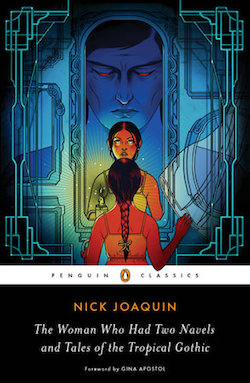
Push/Pull, the art gallery and comics shop in Ballard, is launching the 2018 edition of their book club tomorrow at 11 am. Their first book club selection, Everfair, culminated in an art show with an appearance by Seattle author (and SRoB contributor) Nisi Shawl. This year's selection is Nick Joaquin's The Woman Who Had Two Navels & Tales of the Tropical Gothic, and the book club will again conclude in an art show in May. The book club will meet twice a month through March and there will also be an online component for people who can't make it to every meeting. Find more information and sign up for the book club on Push/Pull's site.
I asked Maxx, the director at Push/Pull, how she selected that particular book for the book club, and she said she encountered Joaquin through this New York Times article last year. "It's a book that has changed the way that I see the world and I'm eager to discuss it with other people," she writes. I'd never heard about this book before, but it sounds fascinating.
The Hugo House has a pair of opportunities that you should know about. They're now accepting applications for their Made at Hugo House Fellowships, which is a fantastic support program for emerging young Seattle writers. And they're also looking for their next prose Writer in Residence. Applications for both these opportunities are due on March 31st. Don't procrastinate, okay?
Spartan, a very good local literary magazine, is now accepting submissions for its spring issue. I shouldn't have to say this, but please read an issue or two before you submit; Spartan is a free magazine so there's really no reason for you not to do your research.
Donald Trump tries to stop book from being published, accidentally publishes book several days early instead
This morning, Donald Trump's White House filed a cease-and-desist order against Henry Holt, the publishers of Fire and Fury, an upcoming book by Michael Wolff about the interior workings of the Trump administration. The book, which was scheduled to be published on Tuesday, has already made headlines after several gossipy excerpts were leaked online.
Greg Evans at Deadline reports that Henry Holt responded to Trump's cease-and-desist in exactly the right way:
“Due to unprecedented demand,” Holt said in a statement, “we are moving the on-sale date for all formats of ‘Fire and Fury,’ by Michael Wolff, to Friday, January 5, at 9 a.m. ET, from the current on-sale date of Tuesday, January 9.”
Fantastic! One thing: If you're interested in buying Wolff's book tomorrow, please make sure that you buy it from an independent bookstore. This book very likely has very little caloric content, politically speaking — the policies of the Trump administration are what matter, and what we should be obsessing over — so you should at least support the families of local booksellers with your purchase, rather than lining the pockets of some other impossibly wealthy man.
Portrait Gallery: David Sedaris
Each week, Christine Larsen creates a new portrait of an author for us. Have any favorites you’d love to see immortalized? Let us know

Friday, January 5: David Sedaris Workshop Performances
From this Friday to Thursday of next week, Sedaris is reading eight times at Broadway Performance Hall. He’s workshopping his next collection, Calypso, which comes out in summer of this year, and he’s counting on Seattle to help him make it perfect.
Broadway Performance Hall, 1625 Broadway, 934-3052, 7 pm, $50.
Jezebel ran with the news first: Seattle writer Lindy West is publishing two books, with one of the books dropping — incredibly — later this year. One book is a collection of film criticism, and the other promises "Lindy’s grand theory of America," which aims to explain our current cultural moment. See? Just when you thought the year was already ruined, you learn that there's something to look forward to!
Kissing Books: series-ously speaking...
New Column! Every month, Olivia Waite pulls back the covers, revealing the very best in new, and classic, romance. We're extending a hand to you. Won't you take it?
This month’s books are heavy on new and continuing series, so it’s a good time to look at how series work in romance.
Romance series, like mystery series, tend to be chains of standalone episodes. While the Fifty Shades phenomenon has made single-couple trilogies briefly A Thing (and in my humble opinion, A Super Boring Thing), more commonly each romance in a series will show one specific happy ending per book—meaning the reader who’s missed the first one or two can still jump in with book three and have a reasonably good time. As distinct from a lot of fantasy and sci-fi series, where plot and character tend to accumulate as a series grows in length; much as I love Ann Leckie’s Imperial Radch books, I would never recommend a reader leap right into book three without reading the first two volumes.
This structure also means that savvy romance readers will start the series on the watch for heroes and heroines of future books. Hence the term sequelbait, referring to a secondary character who will probably (or hopefully) get their own complete romance in volumes to come. Best friends, siblings, ex-lovers, and occasionally even the villain can nab the romantic spotlight, as we saw with last month’s Mary Balogh. Occasionally this goes very wrong, as when Gena Showalter announced that the popular couple she’d been teasing for eleven books would not actually end up together, leaving readers feeling manipulated, betrayed, and exploited for cash. Occasionally, though, authors can use those same expectations to set up a grand and glorious punch to the heart. I’ll never forget the delicious shock Zoe Archer pulled off in her underrated Hellraisers trilogy: four dissolute aristocrats in Georgian London sell their souls to the Devil, fall in love, have a moral awakening, and fight to break the contract. Four heroes, but only three books, because she flat-out killed off one of the sequelbait—for very solid story reasons, so that after the initial surprise there was only the rush of satisfaction and Ah, yes, should have seen that coming. It was a bold and brilliant move, and it still leaves me breathless to think about.
The great thing about sequelbait is it suggests that, in theory, anyone can be a heroine. Side characters are not less important overall, they are merely less central from a limited perspective. Everyone has the potential for a happily ever after. In practice, however, sequelbait is often identified because the markers of romance hero- and heroine-dom can be very narrowly defined: young, cis, white, thin, able-bodied, and straight. It’s not changing as fast as many of us could wish. Whole sections of romance refuse to allow queer characters at all (looking at you, inspirational romance). Romantic suspense author Suzanne Brockmann has received much vocal praise for including gay romance arcs in her popular Troubleshooters series; she has also received plenty of critique from queer romance authors and readers pointing out that she includes those arcs as secondary novellas and subplots, supplemental stories rather than full standalone books alongside the straight couples. Meanwhile a known chunk of m/m readers will flat-out refuse to read anything with m/f sex on the page at all, with suppressive results on the number of bisexual characters in romance, even from queer-friendly publishers.
The series whose books we see below are pushing back against much of this. Alisha Rai’s Wrong to Need You, second in her beautifully soapy Forbidden Hearts trilogy, features a bi heroine in a matter-of-factly diverse town. Tamsen Parker’s Snow and Ice Games series promises both an m/m and f/f couple in future books; the first one is a lively adrenaline rush perfect for winter reading. Cat Sebastian begins a new m/m historical series, Seducing the Sedgwicks, with a gorgeous, thoughtful take on a high-concept premise, and a vicar hero whose sexuality is never at odds with his faith, only with society’s denial of it.
Happy reading!
Recent Romances:
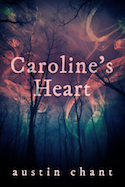
Caroline’s Heart by Austin Chant (self-published: trans m/trans f Western fantasy)
Fantasy romance, like all fantasy, lives and dies on how deeply the reader can sink into the made-up world—and oh, how easy it was to tumble into this one. All the weight and swelter of a hot Texas summer (plus magic!) grabs you on page one and never lets go. Hero Roy is wry and weathered and loveable as only a soft-spoken cowboy can be. He says ma’am a lot, which I know will appeal to plenty of readers. As a trans man, Roy’s learned to keep himself to himself and stay far away from trouble, so of course he ends up risking his life to save a pretty trans witch in the middle of a saloon brawl. Cecily, our witch, makes magical prosthetics (hands, spines, etc.); she is lonely but prickly and her great ambition is to bring back her girlfriend back from the dead. Roy’s cure requires her to give up a precious object she’d been hoping to use for the resurrection spell, and the rest of the novella is about the achingly sweet progression of two heartsore people coming to care deeply for one another. It’s a lovely and rare piece of work, not least because of the beauty of the love scenes, which with two trans characters come with more risk and vulnerability built in from the start, making the rewards feel that much sweeter. This is a shout it from the rooftops kind of recommendation. Do not miss this one.
The human body is a complexity of anchors and pulleys, but Cecily has devoted herself to understanding it, tailoring the tension and slack of each spell-thread until the prosthetic leg can bend and stretch gracefully.
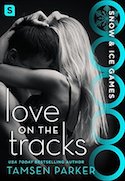
Love on the Tracks by Tamsen Parker (Macmillan: contemporary m/f):
Tamsen Parker’s first book was an erotic romance with an Orthodox Jewish heroine—so you know she’s an author who’s always up for a high-concept challenge. Love on the Tracks, first in the Snow and Ice Games series, features a boy-band star singer and a gold-medal hopeful in women’s luge: their cute publicity photo-op goes viral and they start fake-dating to milk the momentum. And then: real feelings! Complicated by the intense and neverending pressure to perform, the ambitious career drive, the lack of time and privacy for anything like a social life, and the machinations of a meddling manager and an obsessively overprotective father. Plus the real risk of death in competition for our heroine. This book has a great many pleasures: the adrenaline rush of high-stakes competition, the peek at pop songcraft, the fact that heroine Rowan is the hard-bodied, cut, muscular one and hero Zane is the one most often described as pretty. Zane is also the emotionally tuned one—he’s an expert at riding out the ups and downs of his bandmates’ moods—while Rowan is cagey about feelings but completely physically uninhibited. It’s a fun mix: the banter is gentler and less antagonistic than The Cutting Edge (my sports romance all-time high-water mark) but there’s still plenty of drama to keep the pages turning. Sweet and sensual as good hot chocolate, with a lovely bright peppermint spike.
What she’s doing, a simple but pretty harmony, hits something in my soul. Like a cold glass of lemonade on a hot summer day, it shouldn’t be remarkable—how many glasses of lemonade have you had in a lifetime?—but there’s something about it that will remain with me for the rest of my life.
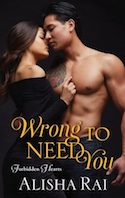
Wrong to Need You by Alisha Rai (Avon: contemporary m/f):
While I believe the definitive review of this phenomenal book has already been written, allow me to add a little something to the conversation: BJIFDSJBKDSBJKADVBJAVBJKAVKBJ!!!
… Alright, let me add a bit more. Christmas night I arrived home from a day full of dinner with good friends and excited puppies and some exhaustingly painful family drama. I felt achey and chilled, and a tenderness in the throat warned I was coming down with the vicious flu that’s been going around. Bed was a siren song. All I wanted was to read a chapter or two of something distracting while the cold sheets warmed up.
You see where this is going. Sore throat, exhaustion, even the soporific warmth of the mini-dachshund snuggling up against me like a living hot-water bottle—all these fell away under the spell of a true page-turner. I did not stop reading until that last chapter was finished. If the third book had been available, I’d have kept right on reading. Sadia’s desperate struggle to do her best as a mother, as a boss, as a widow—Jackson’s careful self-protection and paralyzing shyness, the dangerous shards of old pain too long carried—the electric spark and sizzle of the love scenes—the atmosphere of old secrets dusted off and new chances taken up—it’s the finest, sweetest melodrama we’ve seen in a very long time.
Nights like this are what I read romance for. Books like this are why I read Alisha Rai.
Her wardrobe had slowly evolved to clothes she could wash and wear and could be easily mixed and matched. It was more efficient, and she had tried to become as efficient as humanly possible. She wielded lists and journals and pens the way other people might wield swords.
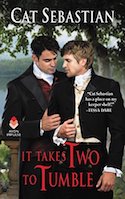
It Takes Two to Tumble by Cat Sebastian (Avon Impulse: m/m historical):
A queer Regency Sound of Music—you’re either already in or already pulling the emergency escape handle. Me, I can never get enough stern, brooding sea captains in my fiction (Wentworth, Ahab), and when you add in the promise of an adorable vicar hero I am sold. Of course, stern Captain Phillip Dacre has a vulnerable side, and the playful vicar Ben Sedgwick secretly craves order and comfort and stability. It’s not a new recipe, but it sings in the hands of an artist. This book gets off to a somewhat rickety start, but only until the reader realizes that this book has one of the most disorderly worlds a romance has seen in a long while. Landscapes shift with a thought, servants and children and gentlemen are dragons and devils and princes, the hands of the clock speed and slow in mischievous, irregular ways. It’s all officially metaphorical, of course—except that it’s everywhere between the eye and the story, a lens that keeps shifting like a kaleidoscope with the characters’ mood and memories. The literary term is pathetic fallacy—and we even have a Romantic poet character around to blame it on—but analysis aside it really feels as if there is something quicksilver and alive at the heart of this book that refuses to be pinned down to commonplace realism.
Peace, Ben knew, was a series of small things, each insignificant but together making landmarks for a life.
This Month’s Cross-Dressing Heroine
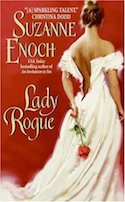
Lady Rogue by Suzanne Enoch:
One of the more fascinating tropes in historical romance is the heroine in breeches, or cross-dressing heroine. (Cross-dressing heroes, while not unknown, are much rarer.) It’s very much in the Shakespearean comic tradition—women dressed as boys, trading witty banter, falling in love with men while knowing that male attire prevents the romance from ever being acknowledged. Done poorly, this trope can shore up harmful gender essentialist stereotypes: the ‘she couldn’t hide her essential female nature’ kind of book. Done well, it can be playful, subversive, even edgy—trans-adjacent, if not precisely trans-inclusive. And of all the cross-dressing heroines I’ve read, Suzanne Enoch’s Kit Brantley remains my favorite.
Kit (née Christine) is the child of a down-and-out nobleman turned smuggler for the French: she’s been raised as a con artist, a pickpocket, a thief, and has dressed and lived as a boy for the past ten years. She’s scrappy as hell. Her father deposits her with the Earl of Everton ostensibly to keep her safely in London during Napoleon’s sudden return to power, but really Kit’s job is to find out which meddling peer has been messing up their smuggling operations. Naturally, it’s the earl himself; naturally, he and Kit fall in love.
This trope often has the hero spend long chapters agonizing over his attraction and fretting, as Mindy Hung put it for the Toast, “am I a gay?”. This book plays no such games. Everton figures out Kit’s disguise on page 15, a day after they meet, and the truth makes him and Kit co-conspirators in a delightful, mischievous way. Kit gets a new exquisitely tailored masculine wardrobe—to her great delight—makes fast friends with Everton’s cronies, and generally swans about charming Society and making all the girls swoon over how handsome she is. Everton’s mistress figures out the truth and jealously begins blackmailing the earl, a threat which will ring familiar to anyone who knows how someone’s transness can be attacked in real life by bigots and the unscrupulous. In between blackmail, familial betrayal, and international espionage Kit begins exploring what it would mean to live openly as a woman: it’s something part of her yearns for, even though it is unfamiliar, uncomfortable, and downright frustrating. She makes a beautiful woman—of course she does—but while Christine Brantley is a more socially acceptable identity, the book takes care not to erase or invalidate Kit’s self as Kit. A few lies are told to make Society happier with the transition, but it’s Kit who charms Everton, breeches and all.
He watched as she strolled off in the direction of the punch bowl. The fact that she knew no one in the room, and almost nothing about the blue-blooded society she found herself in, presumably had no effect on her. Apparently Kit Brantley was afraid of nothing. And though that, too, brought into question her reasons for seeking him out, he couldn’t help the smile that touched his lips. She was afraid of nothing, that was, other than whether her cravat was de trop.
Thursday Comics Hangover: They're good comics, Brett
I'm convinced the telecommunications network is doomed to collapse so I started making zines again! You can buy one and have it delivered to your mailbox. Old skool! #zine #comix #cartoon #drawing pic.twitter.com/mPuggYQn16
— Brett Hamil (@BrettHamil) December 18, 2017
I don't think that Seattle writer and comedian Brett Hamil would be offended if I referred to his art as amateurish. He's not looking to wow you with his hyperrealistic portraits, or his three-dimensional rendering style. No, the illustration in his cartoons are fairly primitive; they're better than I (and likely you) could draw, to be sure, but not by too much.
And that's okay. Hamil is a standup comedian, and his cartoons are strictly joke delivery systems — the quickest way for him to get a good laugh out of you in the print medium. In that regard, they work really well; they're classic gag cartoons.
Hamil has collected some of his funniest City Arts cartoons in a five dollar zine titled Subconscious Hairstyle Mirroring (and other notions), and I'm pleased to report that the strips work even better in aggregate than they did singly, as they were originally published.
Like any good gag cartoonist, Hamil works within a few formulas. He imagines absurdist magazine covers (sample Infant Magazine headline: "Object Permanence: Myth or Fact?") and creates little four-item lists of observational comedy (one of the items in "Why We've Got Swagger Today:" "Found typo in the New Yorker.")
These strips are full of the kind of laughs that come when you recognize the absurd in the familiar. Schlubby middle-aged white guys are absolutely crazy about boxer briefs, for instance, and introducing someone to your favorite barista is, in fact, a major relationship benchmark. When rendered in Hamil's no-frills style, the jokes are even funnier: there's a nice back-of-the-envelope feel that saves the strips from becoming too self-important.
Hamil claims to have assembled Hairstyle as a minicomic because he believes the internet, with its weird self-destructive social media and its lack of net neutrality, is going away. I'd almost welcome internet armageddon if it meant more physical media like this.
And I'd definitely welcome another collection of comics that highlight Hamil's more strident political side. With his passionate political commentary Hamil has become one of Seattle's most outspoken citizens — the kind of angry truth-teller that politicians loathe and activists adore.
Hairstyle generally sticks to social commentary and absurdist comedy, and that feels exactly right for a debut collection. But if Hamil published a collection of comics about Seattle's consistent failure to construct a strong municipal broadband system, for example, I'd be the first in line to slap down my five bucks. When a comedian starts speaking relentless truth to power, that's when things really start getting good.
Pay no attention to the brogrammer behind the curtain
At the beginning of last night's Reading Through It Book Club at Third Place Books Seward Park, one of the members of the book club had to ask a question that really should have been answered in the text: What, exactly, is an algorithm? Given that Cathy O'Neil's Weapons of Math Destruction — is subtitled "How Big Data Increases Inequality and Threatens Democracy", you'd think that an explanation of what, exactly, an algorithm is would be addressed in the book. But it wasn't.
Don't get me wrong: O'Neil generally does a good job of introducing tech-innocent readers to the many ways that data companies are manipulating their daily lives. But she fails to establish a baseline understanding of the tools Facebook, Google, and other companies use to control the user experience, and the book suffers for it.
So for the record, an algorithm is just a process — often a tedious repetition of a formula — that plays out in a fraction of a second. It's often used as a filter, or an interpreter, or a solution to a problem. But like any tool, algorithms can be used for good and bad purposes. And algorithms are always the creation of humans, and they always contain some very human flaws.
O'Neil does an excellent job in Math of establishing how the biases of software developers play out in the real world. Big data is biased against the poor, and people of color, and other humans that software developers — traditionally white, upper class men — are traditionally biased against.
In education, in the criminal justice system, in credit histories and bank loans, the algorithms and software created by Silicon Valley is conforming to — and in many cases exacerbating — the preexisting prejudices that mainstream American conventional wisdom has always held. And because computers carry with them an air of impartiality, of logic, we often don't think twice when those results reflect our own biases.
With Math, O'Neil is performing a valuable service: she's letting readers know that we've given over many if not most of our major life events — school, employment, health care, everyday purchases — to systems that are just as messy and wrong-headed as any human. The face behind the computer is a human one, and it is not always a friendly face.
So what do we do? The book has very few answers. At this point, it's probably best to just understand how deep these problems run, and to observe how we are affected by the sites and algorithms around us. In that respect, O'Neil's book is a perfect first step toward fighting back against the damaged systems being constructed around us every day.
The next Reading Through It meets at Third Place Books Seward Park on Wednesday, February 7th at 7 pm. We'll be discussing Robert Reich's book Economics in Wonderland: A Cartoon Guide to a Political World Gone Mad and Mean. The book, which is published by Seattle's own Fantagraphics Books, is now 20% off at Third Place Books. I hope to see you there.
Mail Call for January 3, 2018
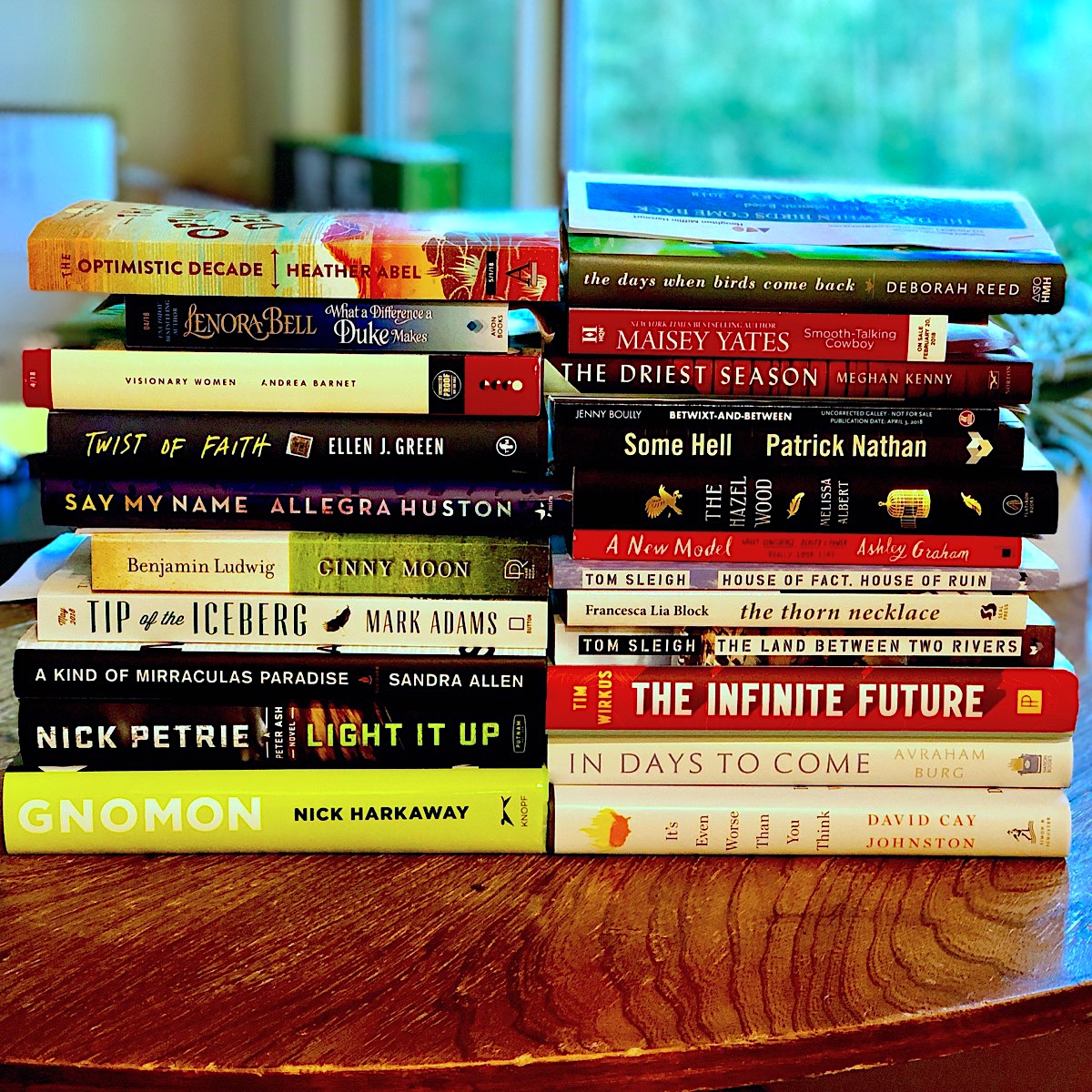
The Seattle Review of Books is currently accepting pitches for reviews. We’d love to hear from you — maybe on one of the books shown here, or another book you’re passionate about. Wondering what and how? Here’s what we’re looking for and how to pitch us.
